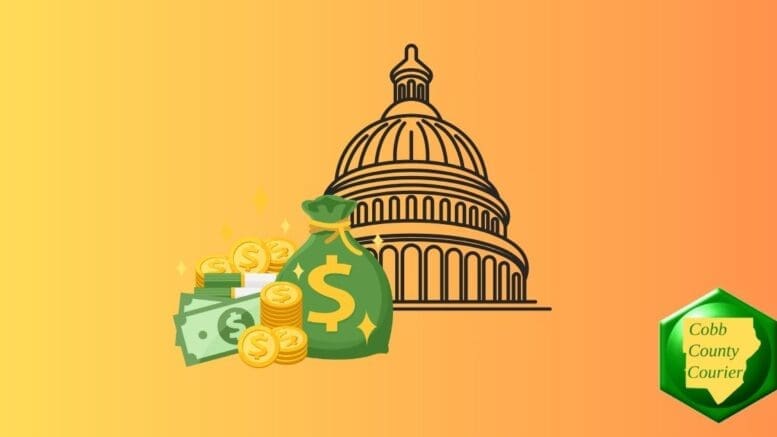By John A. Tures, Professor of Political Science, LaGrange College
In a previous article for the Cobb County Courier, I defined what “dark money” is, and how 501(C)(4) groups, also known as “social welfare organizations,” have powers that public charities like 501(c)(3) groups don’t. In this article, I look at the impacts of dark money on American politics and what we’ve learned so far.
When I was in graduate school, I interned for U.S. Senator Russ Feingold, and later volunteered for the McCain 2000 campaign in Delaware. You may remember the McCain-Feingold legislation, which (as posted by Ballotpedia) “according to Congressional Research Service, soft money refers ‘to funds generally perceived to influence elections but not regulated by campaign finance law.”
Prior to the enactment of McCain-Feingold, this included ‘large contributions from otherwise prohibited sources, [which] went to party committees for ‘party-building’ activities that indirectly supported elections.’ The law prohibited national political parties, federal candidates, and officeholders from soliciting soft money contributions in federal elections.
In addition, McCain-Feingold barred corporations and unions from spending on issue advertisements (sometimes called electioneering communications), which are defined as ‘broadcast ads referring to clearly identified federal candidates within 60 days of a general election or 30 days of a primary election or caucus.’”
I included this lengthy quote from the CRS and the Federal Election Commission because it seems to be from a different era and country, almost, in the same way “The Andy Griffith Show” differs from life in America today.
The Supreme Court largely upheld the law, also called the Bipartisan Campaign Finance Reform Act in the McConnell v. FEC 2003 case. Almost prophetically, Justices Sandra Day O’Connor and John Paul Stevens wrote “Money, like water, will always find an outlet. What problems will arise, and how Congress will respond, are concerns for another day,” in their majority opinion.
Sure enough, after the Citizens United v. Federal Election Commission case, the McCain-Feingold bill was gutted by a new Supreme Court in 2010. I wrote that ironically, the Citizens United group, despite being the victors, were upset with the ruling. Some groups wanted to raise even more money and with more secrecy. They would get their wish with 501(c)(4) groups. Our government has gone from regulating soft money to embracing dark money.
Emily Lau writes in The Conversation:
Another dark money pathway involves making donations to super PACs through shell companies, which are companies set up for the purpose of hiding the financial activities of other people or groups – in this case, political contributions.
Although super PACs are legally required to report who they received the contributions from, if the funds come from shell companies, the super PACs may not know and are not required to disclose where the money actually came from. That information remains hidden from public view. A lack of donor transparency raises multiple concerns.
Voters may have a harder time assessing the validity of political messages or discerning whether candidates may be beholden to certain interests. Regulators and watchdogs can have trouble detecting illegal activity, such as campaign spending by foreign nationals. And unscrupulous people and groups can spread misinformation or destructive rhetoric without being identified or held accountable.
Lau documents that several states are already demanding more transparency in such campaign donations but there are fears that the U.S. Supreme Court will also knock down these sunshine laws, based on a recent case involving public charities and disclosure laws (Americans for Prosperity Foundation v. Bonta from 2021). This will only have the effect of convincing Americans that any money trumps their vote. As The Government Affairs Institute at Georgetown University writes, “The potential for mischief, hypocrisy, and corruption is obvious and only reinforces the public’s distrust of the electoral process.”
John A. Tures is a professor of political science at LaGrange College in LaGrange, Georgia. His views are his own. He can be reached at jtures@lagrange.edu. His “X” account is JohnTures2.l
